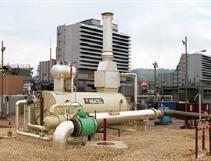- Meeting ASME standards helps ensure your hairpin heat exchangers are safe and reliable.
- Meeting ASME standards is not just a way to keep you safe, it’s also the best option for your wallet. It ensures that when something goes wrong with one of these exchangers in an application where they’re used – like water heater or air conditioning unit replacement- there will be no need whatsoever into look elsewhere because all current models meet rigorous safety requirements set forth by America’s Society on Engineering Petroleum Gas Transmission & Storage (ASPT).
How to choose the right size heat exchanger?
- You can’t choose a type of heat exchanger that is best for you. You need to know what type your system requires in order to find the right product!
- The amount of heat you need to transfer
- The temperature of the hot and cold fluids
- The flow rate of the hot and cold fluids
- The pressure of the hot and cold fluids
- The dimensions of the space you have available for the heat exchanger
- What are the benefits of using a custom heat exchanger?
- There are many benefits to using a custom heat exchanger, including:
- Custom-designed heat exchangers can benefit your large or small fluid flow applications. The variety of materials and connection types allows you to find the perfect design for any application, while also meeting specific needs like those associated with corrosion resistance in wet environments.
- Common heat exchanger problems and their solutions.
There are a few common heat exchanger problems that you may encounter, and knowing how to solve them can help extend the life of your heat exchanger. Some common problems include:
The key to preventing plumbing problems is regular cleanings.
Solutions include using chemical cleaners, increasing the flow rate of fluids inside those tight confines or even replacing pipe with new ones if needed!
Solutions include using corrosion-resistant materials and/or coatings, and increased maintenance and inspection.
Imagine the worst case scenario – your heat exchanger is leaking!
A custom heat exchanger can be a great solution for your specific needs, and it is important to make sure that it conforms to ASME standards to ensure safety and reliability. For more information on custom heat exchangers, please contact us today.
What are the types of the custom heat exchangers?
There are a number of different types of custom heat exchangers, each with their own unique benefits and features. Some of the most common types include:
-Shell and tube heat exchangers: This type is one of the most common types of heat exchanger, and it features a series of tubes surrounded by a shell. This allows for efficient heat transfer between the two fluids.
-Plate and frame heat exchangers: The small size of this heat exchanger makes it perfect for tight spaces like under sinks.
-Heat exchanger coils: It features pre-made coils that can be quickly and easily installed into your system.
Choosing the right type of stainless steel heat exchanger is essential for getting the most out of your system. Contact us today to discuss your specific needs and we can help you choose the right type of heat exchanger for your application.























![To Increase YouTube Subscribers Must Use These Service Provider [New]](https://businessleed.com/wp-content/uploads/2022/11/To-Increase-YouTube-Subscribers-Must-Use-These-Service-Provider-New-360x180.jpg)














